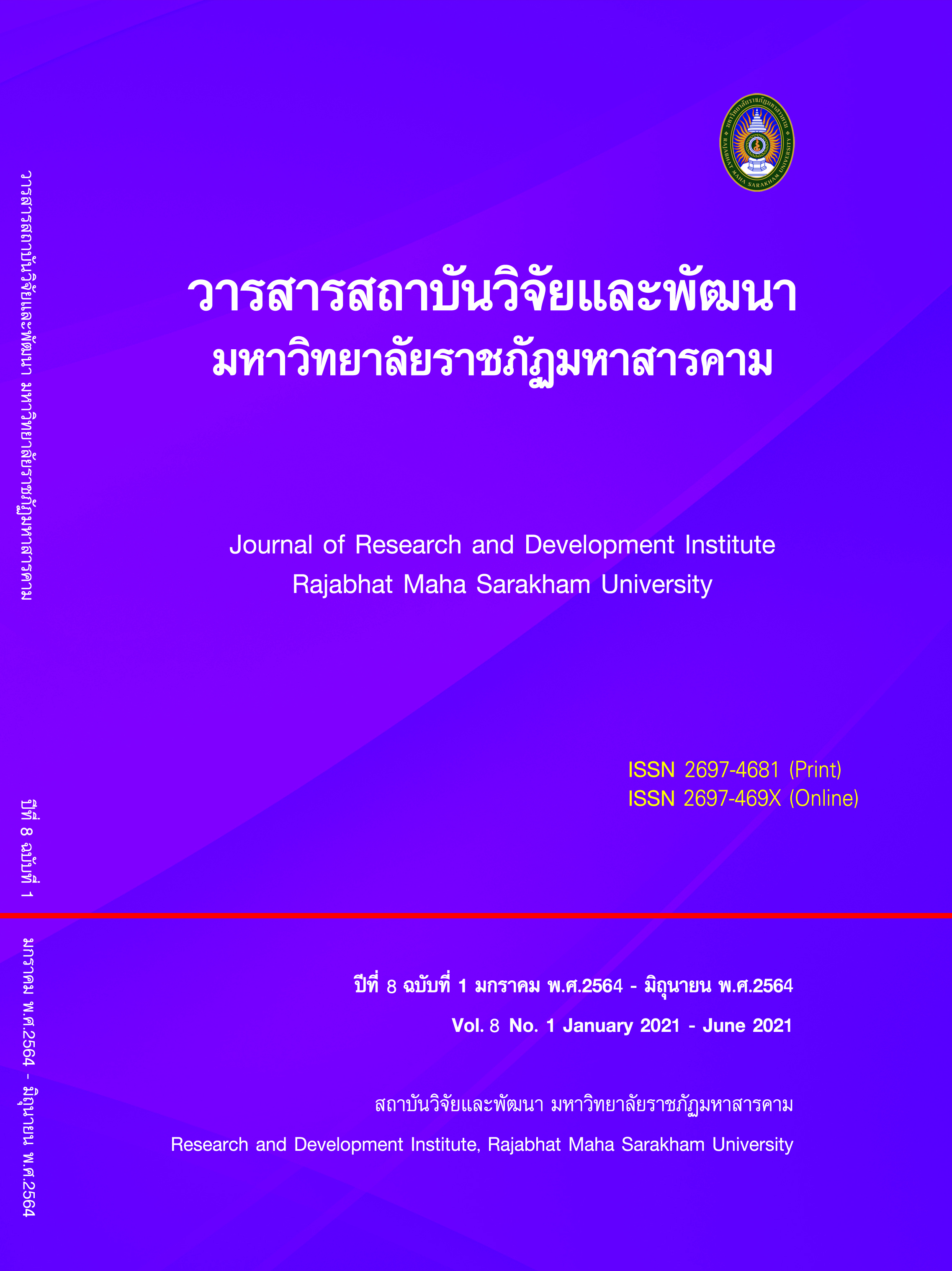The development of Bachelor Program in Digital Business by using Work-integrated learning (WIL) model
Keywords:
Work-integrated learning (WIL) Digital business programAbstract
The purpose of this research was to develop the program specification of the bachelor of business administration program in digital business based on work integrated learning approach. The samples used in the study were teachers and experts in a total of 13. The research procedure was divided into two steps: 1) basic data study and basic data synthesis by using Tyler's curriculum development model; and 2) designing and developing the curriculum in accordance with the guidelines of Thai Qualifications Framework for Higher Education. This research was qualitative research by using a participatory action research method. The result found that the curriculum development of digital business program based on work integrated learning approach was established from the idea of the “placement or practicum” style. The work integrated learning (WIL) study plan was consequently developed into Modular system, which consisted of seven modules including 1) observe digital businesses 2) manage online businesses 3) plan digital media 4) set digital businesses 5) design international business media 6) practice in business problem assessment and 7) work placement in business management and further business development.
References
Yawai, A., et al. (2018). Developing an integrated curriculum Study and work in the field of applied management to meet the needs of the labor market in Nakhon Ratchasima province. Journal of Education Studies, 46(1), 133-156.
Yawai, A., et al. (2019). Improving student learning outcomes by creating a learning environment by working in real conditions. Bangkok: Office of the National Research Council of Thailand and the Office of Research Fund.
Suwannapa, C. (2015). Integrated learning management to enhance thinking skills in the social studies seminar course for students in the field of social studies, Mahachulalongkornrajavidyalaya University, Phrae Campus. Journal of mcu Peace Studies3 (2), p. 1-19.
Cooperative Education Development Network in the Upper South. (2018). Integrated teaching and learning management manual (Complete edition). Nakhon Si Thammarat: Walailak University.
Ministry of Higher Education, Science, Research and Innovation. (2019). Higher Education Act 2019. [Online]. https://www.mhesi.go.th/home/index.php/aboutus/legal-all/62-legal/act/2143-2019. [10 April 2019]
Office of the National Economic and Social Development Board. (2016). National Economic and Social Development Plan Twelfth Issue 2017 – 2021. [Online] https://www.nesdc.go.th/ewt_dl_link.php?nid=6422. [15 April 2019]
Chininthorn, P and Plaimas, W. (2010). Success Factors of Integrated Education and Work Management for Thai Higher Education. Proceedings of the 7th Kasetsart University Kamphaeng Saen Campus Conference, December 7-8, 2010. 1056-1063.
Bangkok: Kasetsart University.
Phuekprom, P. (2016). The development of English language courses based on the concept of integrating content with language and Project-Based Learning for High School Students. Master’s Thesis: Chulalongkorn University.
Downloads
Published
How to Cite
Issue
Section
License
Copyright (c) 2021 Journal of Research and Development Institute Rajabhat Maha Sarakham University

This work is licensed under a Creative Commons Attribution-NonCommercial-NoDerivatives 4.0 International License.
Articles that are published are copyrighted by the authors of the articles







